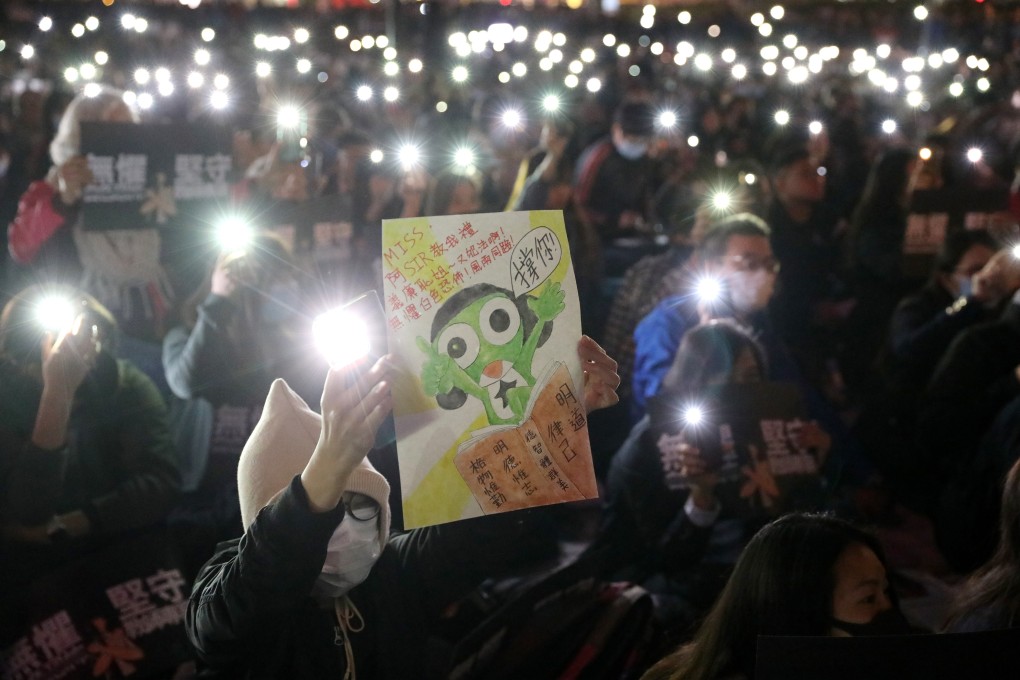Letters | Hong Kong protests: how far will naming and shaming of teachers go?

I know nothing about the alleged crimes for which the teachers are being prosecuted. I do know that in civilised states people are innocent till proven guilty. Mr Leung considers his 803 Funds Limited group as virtuous. The group – established to root out anti-government, criminal protesters – is a means, he says, of providing vital information to Hongkongers. But, to others, Mr Leung’s organisation looks very much like the nucleus of a spy network that will quickly erode the little trust left in Hong Kong society.
For instance, what are we, in the universities, to expect of Mr Leung’s interventions? 803 partisans dropping in on our Zoom-relayed lectures? Scans of course syllabuses posted on Facebook? Choicely edited recordings of what professors say to their students? Dark insinuations that something stated in class now constitutes “seditious words”?
Before he became Hong Kong’s chief executive in 2012, Mr Leung was chairman of Lingnan University’s Council. It is thus appropriate for a professor of that university, and a later Lingnan Council board member, to protest his actions.
I say to him: please rein in your demagogy, Mr Leung. Desist from threats. Stop fanning fear in this city; it is fearful enough already. You urge transparency. Very well. Might you then, as a former chief executive of Hong Kong, and now vice-chairman of the National Committee of the Chinese People’s Political Consultative Conference, host a live-streamed public debate on the topic of the place of politics in teaching? You, I and others could communicate our contrasting perspectives on the issue to the Hong Kong public at large.
Peter Baehr, research professor in social theory, Lingnan University